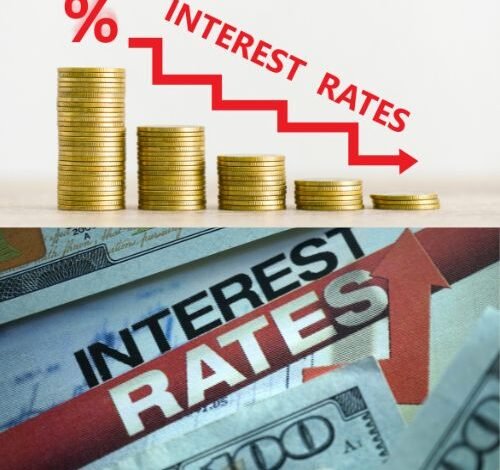
How to Lower Your Credit Card Interest Rates: Strategies for Saving Money
Credit card interest rates can be a significant burden if you’re carrying a balance month-to-month. The average credit card interest rate is often high, which means that, over time, the amount of money you owe can increase substantially. Fortunately, there are ways to lower your credit card interest rates and reduce the amount of money you spend on interest. In this article, we will explore effective strategies for lowering credit card interest rates, tips for negotiating with credit card companies, and other useful financial advice that can help you save money. We’ll also incorporate high CPC (cost per click) keywords for Google Ads that will boost engagement.
Understanding Credit Card Interest Rates
Credit card interest rates, also known as Annual Percentage Rates (APR), are the fees you pay for borrowing money through your credit card. Credit card companies use these rates to charge you interest on any outstanding balance carried from month to month.
Credit card interest rates vary depending on several factors, including your credit score, the type of card you have, and the issuing bank. Typically, the higher the interest rate, the more money you will pay in interest over time.
High APRs: A Financial Burden
If you’re someone who tends to carry a balance, a high APR can lead to significant debt accumulation. For example, if you have a $5,000 balance on a card with a 20% APR, you could be paying over $1,000 in interest alone if you don’t make more than the minimum payment. This can prevent you from making progress on paying down your debt and ultimately cause financial strain.
Reducing your APR can make a big difference in the amount of interest you pay and help you get out of debt faster. Let’s explore how you can reduce your credit card interest rates.
1. Negotiate with Your Credit Card Issuer
One of the most straightforward ways to lower your credit card interest rate is to contact your credit card issuer and ask for a reduction. If you have a history of making payments on time and maintaining a good credit score, your credit card company may be willing to accommodate your request.
Tips for Negotiating:
- Be Polite and Professional: When calling, be polite, calm, and professional. You’re more likely to get a positive response if you remain respectful.
- Explain Your Situation: Let them know that you’ve been a responsible cardholder and that you’d like to lower your interest rate to help manage your debt.
- Mention Competing Offers: If you’ve received offers from other credit card companies with lower APRs, mention this as leverage. Credit card issuers are often willing to lower your rate to keep you as a customer.
What to Expect:
While it’s not guaranteed that your request will be approved, many people successfully lower their APRs through negotiation. If your current credit score is good or improving, the chances of success are even higher. Remember, even a small reduction in your APR can make a big difference over time.
2. Transfer Your Balance to a Credit Card with a Lower APR
If your credit card issuer won’t lower your APR, another option is to transfer your balance to a credit card with a lower interest rate. Many credit card companies offer 0% APR balance transfer promotions for a limited time, usually between 6 to 18 months.
Benefits of a Balance Transfer:
- 0% Interest for a Promotional Period: Many balance transfer cards offer an introductory period of 0% APR, allowing you to pay down your balance without accumulating additional interest.
- Save on Interest: By transferring high-interest debt to a 0% APR card, you can save a significant amount on interest during the promotional period.
- Focus on Paying Down Debt: With less interest to worry about, you can put more money toward reducing the principal balance.
Important Considerations:
- Balance Transfer Fees: Many balance transfer cards charge a fee (usually around 3% to 5% of the transferred amount). Be sure to calculate whether the savings on interest outweigh the cost of the fee.
- Introductory Period Ends: Once the introductory period ends, the APR will typically revert to a higher standard rate. Make sure to pay off as much as possible before that happens.
- Eligibility: To qualify for the best balance transfer offers, you generally need a good credit score.
3. Improve Your Credit Score
Your credit score plays a major role in determining your credit card interest rate. If you have a low credit score, your interest rate will likely be higher. Improving your credit score is one of the best ways to reduce your APR in the long term.
Steps to Improve Your Credit Score:
- Pay Your Bills on Time: Payment history is one of the most important factors in your credit score. Paying bills on time will improve your score and show creditors that you are a responsible borrower.
- Reduce Credit Utilization: Try to keep your credit utilization ratio (the percentage of your available credit that you’re using) below 30%. If you consistently use too much of your available credit, it may lower your score.
- Dispute Errors on Your Credit Report: Check your credit report for any errors and dispute them. Mistakes, like incorrect late payments or balances, can negatively affect your credit score.
By taking these steps, you can improve your credit score and potentially qualify for credit cards with lower interest rates in the future.
4. Use a Credit Union
Credit unions often offer lower interest rates on credit cards compared to traditional banks. If you are a member of a credit union or can become one, you may be able to access lower APRs on your credit card.
Advantages of Credit Union Credit Cards:
- Lower Interest Rates: Credit unions typically offer more competitive interest rates than traditional banks or credit card companies.
- Fewer Fees: Credit unions are known for charging fewer fees, which can further save you money over time.
- Personalized Service: As member-focused organizations, credit unions may provide more personalized customer service.
If you qualify for a credit union membership, this could be a great way to reduce your APR and save money on interest.
5. Pay More Than the Minimum Payment
Making only the minimum payment on your credit card may seem manageable, but it can take years to pay off your balance, especially if you have a high APR. Paying more than the minimum payment will help you reduce your balance faster and save money on interest.
Why Paying More Helps:
- Less Interest: The more you pay toward your balance, the less interest you’ll accrue. Credit card interest is calculated based on your average daily balance, so reducing your balance will reduce the interest charged.
- Pay Down Debt Faster: By making larger payments, you can pay off your debt more quickly and reduce the overall cost of borrowing.
If possible, try to make payments above the minimum to speed up your progress and reduce your APR over time.
6. Look for No-Interest Promotional Offers
Some credit card companies offer promotional periods where you can avoid paying interest on new purchases for a set period (often 6 to 12 months). If you’re planning a large purchase or need to transfer a balance, this can be an excellent way to lower your interest costs.
Key Benefits:
- No Interest on Purchases: During the promotional period, you won’t accrue interest on new purchases, giving you time to pay off the balance before the standard APR kicks in.
- Pay Off Debt Faster: With no interest during the introductory period, more of your payments will go toward the principal balance, allowing you to pay off your debt faster.
Make sure to read the terms and conditions to understand when the interest-free period ends and what the APR will be after it expires.
Conclusion
Lowering your credit card interest rate can save you a significant amount of money in the long term. By negotiating with your credit card issuer, transferring your balance to a lower APR card, improving your credit score, and making larger payments, you can reduce your financial burden and pay off your debt faster.
Don’t forget to consider alternative options like credit unions and no-interest promotional offers. With a little effort and strategic planning, you can lower your credit card interest rate and achieve better financial stability.
High CPC Keywords for Google Ads:
- “How to lower credit card interest rates”
- “Credit card interest reduction tips”
- “How to negotiate lower APR”
- “Best balance transfer credit cards”
- “Improve credit score to lower interest”
- “Credit union credit cards with low APR”
- “0% APR credit cards for balance transfer”
- “Pay off debt faster with credit cards”
By focusing on these high CPC keywords, you can optimize your Google Ads campaigns and attract more traffic to your financial services or credit card products.


